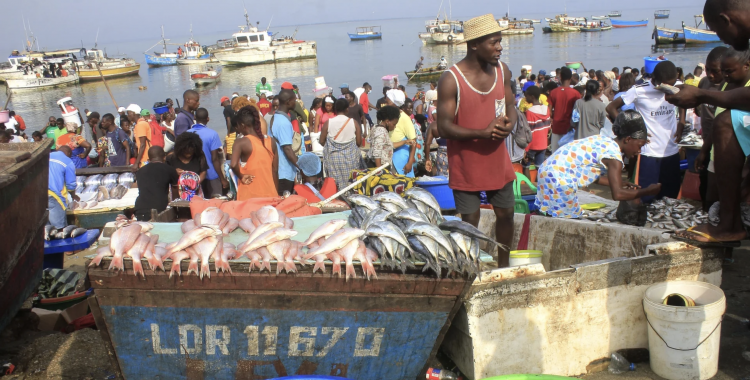For these artisanal fishermen, going fishing has, in recent times, been a risk to their lives, as a result of the assaults they say they suffer on the high seas. Many have already resulted in the deaths of colleagues, they say, in statements to Lusa.
But the search for bread does not stop the journey of artisanal fishing owners who only breathe a sigh of relief when they return to the coast with some fish in small boats.
"In the beginning, at sea, in 24 hours, we had no problems, now we are seeing different men, with different masks at sea, we are seeing robberies at sea", Adão Domingos Pedro told Lusa.
The 43-year-old fisherman does not hide his fear of losing his life and assumes that robberies on the high seas are the main risk today.
"In the past, we didn't work with this concern. We worked freely and we didn't have this difficulty of armed robberies", pointed out Adão Domingos Pedro, in the sea life for 26 years.
The reduced catch, which has been recorded in recent months, is another concern of fishermen in the well-known salting area, on Ilha de Luanda, urban district of Ingombota.
Tuna, carapinha, marionga, lambula (sardines), kimbumbu, cockerel fish, malasso make up the variety of fish caught in these waters and that fill the more than two dozen artisanal boats that dock in the area from the early hours of the day.
After three months off due to low catches, Bernardo Francisco de Jesus, 39, recently returned to the sea. He believes that the situation "now tends to improve", despite the endemic crisis.
The fisherman says that the problems reside, above all, in the threats that many of his colleagues have been targeted, recalling that, on the vessel he worked on previously, more than a dozen ended up dying.
"At sea, there are difficulties because people who go to sea threaten fishermen. On the vessel I worked on last year, my colleagues were robbed, there were 15 young people and they came armed and took 15 boxes of fish", he reported.
According to the fisherman, the administrative and maritime safety authorities are aware of the increase in assaults taking place at sea, and "strengthened inspection".
With more than three decades in fishing, Manuel Chiongue, 51, also regretted the insecurity, considering that the robberies happen mainly in the north, where there are huge shoals.
"We are in the cold weather and fishing has slowed down a little. We have places where we sometimes fish in the North, but on those days we don't go there because of the marginals who entered the sea", he said.
To fish in the North zone, he continued, dozens of boats are needed – between 40 or 50 – to inhibit the criminals.
"Yes, because there are already other brothers who were killed by these criminals and now we are afraid of losing our lives", he pointed out, confirming the poor capture of the last months and pointing out the months of October, November and December as the period with the most captures.
"In this cold weather, there are places where there are (swordfish), but you have to travel many miles", he stressed.
Despite concerns about robberies and the resumption of capture in acceptable quantities, the demand for fish in the salting area is high, an activity dominated by women, the well-known "zungueiras" who purchase the fish to sell at retail.
The price of a box of fish varies between 3000 kwanzas and 7000 kwanzas depending on the size, while retail prices range from 2500 kwanzas to 5000 kwanzas depending on the size.
The scenario of the demand for fish is also visible on the well-known Mabunda beach, urban district of Samba.







